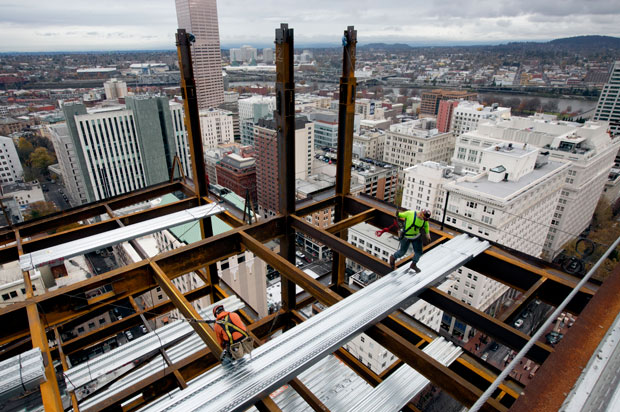With the passage of SB 1533 on June 2, 2016, the state allows local governments to use inclusionary zoning and to implement a new 1% construction excise tax to support affordable housing. Portland is on its way to implementing inclusionary zoning later this year and has already passed the tax to fund it.
If you apply for a building permit after this Monday, you will notice a new construction excise tax in the amount of 1% of the project’s value when you pay for your permit. (Note that ADU’s and projects under $100K are exempt.) For many of our clients, this tax will increase project costs by at least a couple thousand dollars, so we wanted to know: What will the tax be used for?
Commercial projects are expected to generate at least $2.5 million per year for the Portland Housing Bureau’s new Inclusionary Housing Fund to support the production and preservation of units at and below 60% median family income. This fund was just created under this bill, to subsidize a zoning ordinance that hasn’t been passed yet, so I haven’t found detailed information on its use.
According to the development activity in the last 5 years, residential projects (1- and 2-family) are likely to pay at least $5.4 million annually toward this tax. In accordance with state-mandated percentages, Portland will allocate 50% of revenue from residential projects for developer incentives for inclusionary zoning, via the Inclusionary Housing Fund. Essentially, as developers create market-rate housing, they will soon be required to create affordable housing as well, and these funds will help make that feasible. 35% of it will support affordable units (like the commercial project revenue). 15% will go to the state’s home ownership programs, which assist with down payments.
We will keep you abreast of the progress as the city develops the inclusionary zoning ordinance over the coming months. We all want to know how this will affect our neighborhoods, our projects, and the future of Portland.


 RSS Feed
RSS Feed

